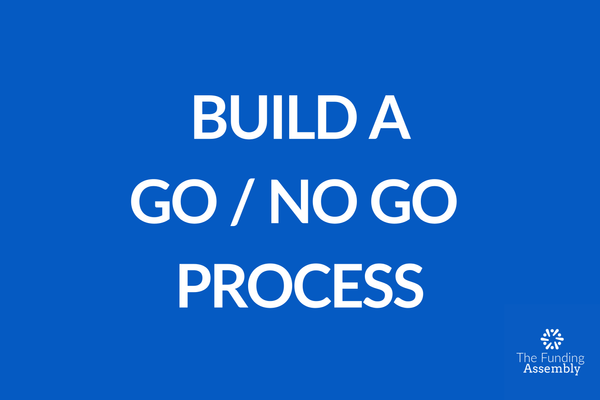Successfully selling a small or medium-sized enterprise (SME) requires carefully balancing immediate business objectives with long-term personal interests. The ultimate outcome of your transaction largely depends on your ability to effectively negotiate key terms, establish appropriate pricing structures, and manage various deal components. By thoroughly understanding buyer priorities, meticulously preparing essential negotiation points, and establishing comprehensive terms, you can significantly enhance your chances of achieving a favorable outcome that meets both your financial and personal goals.
This comprehensive guide provides detailed, practical insights on navigating M&A deal negotiations from a seller's perspective, equipping SME owners with the knowledge and strategies needed to successfully traverse this intricate and multifaceted process.
- Understanding Buyer Priorities
Why It Matters: Potential buyers consistently seek opportunities to maximize their return on investment while carefully managing and minimizing associated risks. Their primary focus areas typically include assessment of financial stability, evaluation of growth potential, and identification of operational synergies. Developing a deep understanding of these fundamental priorities enables sellers to position their business more effectively and create compelling value propositions.
What to Do: Conduct thorough research into potential buyers and their specific investment criteria—carefully analyze whether they prioritize strong cash flow generation, maintain strict debt requirements, or emphasize growth potential. Strategically align your business's core strengths with their stated priorities to develop and present a compelling investment case. Emphasize key differentiators such as your established and loyal customer base, demonstrated track record of strong financial performance, and concrete opportunities for future expansion. Consider partnering with an experienced M&A advisor who can provide valuable insights into buyer expectations and help develop effective negotiation strategies tailored to your specific situation.
2. Setting Clear Deal Terms
Why It Matters: Carefully structured and well-documented deal terms form the foundation for successful negotiations. Critical elements including the final sale price, detailed payment structure, specific contingencies, and comprehensive post-sale obligations must be clearly defined and agreed upon early in the process to prevent potentially serious misunderstandings that could threaten the entire transaction.
What to Do: Establish strong partnerships with experienced legal and financial advisors to develop and document fair and comprehensive terms. Calculate your sale price based on professional valuations from qualified experts and structure payment terms to accommodate buyer preferences—whether through immediate lump sum payments or structured installment arrangements. Clearly outline and document all key contingencies, including specific due diligence requirements and necessary regulatory approvals. Address potential post-sale obligations such as non-compete agreements and ongoing consulting arrangements during initial discussions. Establishing this clarity early in the process helps prevent complications and misunderstandings during later stages of the transaction.
3. Negotiating the Price
Why It Matters: The final transaction price represents a critical component in any M&A deal. Achieving optimal results requires carefully identifying and establishing the delicate balance between fair market value and current market conditions while considering both parties' objectives.
What to Do: Determine your business's comprehensive value through detailed professional valuations and extensive market analysis of comparable transactions within your industry. Carefully evaluate both tangible and intangible assets—including established brand value, demonstrated customer loyalty, protected intellectual property, and documented growth potential. While maintaining ambitious pricing objectives, ensure you can thoroughly justify your asking price with detailed financial data and well-supported future projections. Enter negotiations fully prepared with comprehensive evidence and documentation to support your position and address potential concerns.
4. Preparing for Due Diligence
Why It Matters: The due diligence process provides potential buyers with the opportunity to thoroughly examine your business's financial position, operational efficiency, and legal standing. Inadequate preparation for this critical phase can significantly delay or potentially derail an otherwise promising transaction.
What to Do: Maintain comprehensive, current, and easily accessible financial records—including detailed tax returns, regular profit and loss statements, and accurate balance sheets. Take a proactive approach to addressing potential legal or operational concerns before they become issues. Conduct thorough reviews of all contracts, verify and document intellectual property ownership, and ensure all employee agreements are properly executed and current. Maintaining transparency throughout the process while demonstrating strong organizational practices helps build trust and minimize the likelihood of unexpected obstacles.
5. Identifying and Addressing Potential Deal Breakers
Why It Matters: Various issues ranging from unresolved legal matters and financial discrepancies to unfavorable market conditions can potentially halt a promising transaction. Early identification and proactive resolution of these potential obstacles is essential for maintaining deal momentum.
What to Do: Implement a comprehensive internal review process to identify potential problems—carefully examining everything from existing legal disputes to outstanding financial obligations and detailed financial projections. Regularly evaluate current market conditions and their potential impact on your business's value. Consider both immediate and potential future regulatory changes and market trends that could influence buyer interest. Address any identified issues proactively before entering formal negotiations to establish a stronger foundation for successful deal completion.
6. Building Negotiation Confidence
Why It Matters: Demonstrating confidence throughout negotiations plays a crucial role in securing favorable terms. Your level of preparation and understanding directly influences your ability to achieve desired outcomes while maintaining professional relationships.
What to Do: Develop comprehensive mastery of your financial statements, detailed projections, and current market position. Establish clear minimum acceptable terms before entering negotiations. This thorough preparation and clarity helps ensure effective negotiation without unnecessary compromises. Invest time in practicing responses to potential objections and developing strategies for addressing common concerns. Consider engaging experienced M&A advisors or legal experts to provide additional preparation support and enhance your confidence throughout the process.
7. Considering Post-Sale Involvement
Why It Matters: Many potential buyers express interest in maintaining seller involvement following the transaction. The nature and extent of this continued involvement can significantly impact both the overall deal structure and specific transition terms.
What to Do: Carefully evaluate your willingness to maintain involvement and determine acceptable parameters for potential roles. Clearly define expectations regarding your specific role, anticipated time commitments, and compensation requirements. Address these important considerations early in the negotiation process to prevent potential misunderstandings. Establish clear boundaries and detailed compensation terms to ensure complete alignment between all involved parties.
8. Maintaining Open Communication Throughout the Process
Why It Matters: Maintaining clear and consistent communication throughout the transaction process helps keep negotiations progressing smoothly while preventing misunderstandings that could potentially jeopardize the deal's successful completion.
What to Do: Establish and maintain open communication channels with all potential buyers throughout the process. Demonstrate responsiveness by quickly addressing information requests, proactively managing concerns, and providing regular detailed progress updates. Keep your internal team well-informed to effectively manage expectations throughout the process. Maintaining open and transparent communication helps build trust between parties while maintaining positive momentum toward deal completion.
How The Funding Assembly Helps
At The Funding Assembly, we specialize in helping F&B businesses across Southeast Asia navigate the sales process with confidence, helping them achieve optimal balance between financial objectives and important emotional considerations. Our comprehensive approach combines detailed financial analysis with focused efforts to identify and engage buyers who demonstrate genuine respect for your business legacy. Our experienced team provides guidance throughout the complex transaction process, working to secure optimal deal terms while ensuring smooth transition execution.
Ready to explore selling your SME? Contact our team of experts at contact-us@thefundingassembly.com, and let us help you identify and secure the ideal buyer for your business.
Explore comprehensive negotiation strategies designed specifically for SME owners engaged in M&A transactions. Learn essential approaches for establishing clear terms, negotiating optimal pricing, and successfully navigating potential deal breakers to achieve successful transaction completion.
Keywords:
- Negotiation tips for SME owners
- M&A process
- Deal terms
- Business pricing
- Due diligence
- Negotiation strategies
- Post-sale involvement
- Business sale



